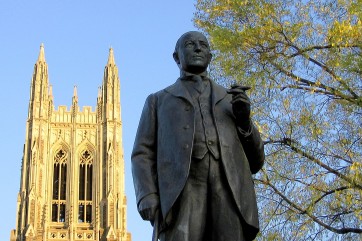Student-Athletes Playing Major Sports in College Fall Short of Going Pro 90+ Percent of the Time
By Russell WesterholmAn overwhelming majority of collegiate athletes never make their respective professional league for a number of reasons, but a surprising amount believe they will.
Speaking with Inside Higher Ed, Ramogi Huma detailed the hip injury that ended his hopes of playing in the NFL, which he thought at the time to be quite possible. Now looking back, he said he does not think that would have been a reality even if he stayed healthy.
"I was going to make sure I got my degree, and I really didn't think the NFL was much of a possibility for me," the National College Players Association founder said. "But then it got into my head that maybe it actually was."
Statistics from the National Collegiate Athletic Association (NCAA), the governing body for college sports, say 52 percent of Division I football players believe they will play in the NFL. However, a mere two percent realize that dream.
It can be extremely easy to not even consider the possibility of falling short of such a lofty goal, given many an athlete's competitive drive. Still, coaches and their staffs play somewhat of a role in how they recruit.
On his own website, Michigan State head men's basketball coach Tom Izzo features a list of players he coached in college who are now in the NBA. That is a major part of recruiting in any major sport and they are not technically lying. As hard as it is to become a professional athlete, it is not impossible.
Just improbable.
Per Inside Higher Ed, here are the figures for how many student-athletes in major sports expect to go pro versus how many actually do.
Men's basketball: 76 percent versus 1.2 percent
Women's basketball: 44 percent versus 1.9 percent
Football: 52 percent versus 1.6 percent
Baseball: 60 percent versus 9.4 percent (though there are currently several levels to the minor leagues in the U.S.' Major League Baseball).
"Good athletes get so consumed with playing their sports, it's very difficult to take a step back and realize what else is going on," Mark Nagel, a professor of sports and entertainment management at the University of South Carolina, told Inside Higher Ed. "It's commendable in some ways, because it's really what they want to do. It's an all-consuming passion."








